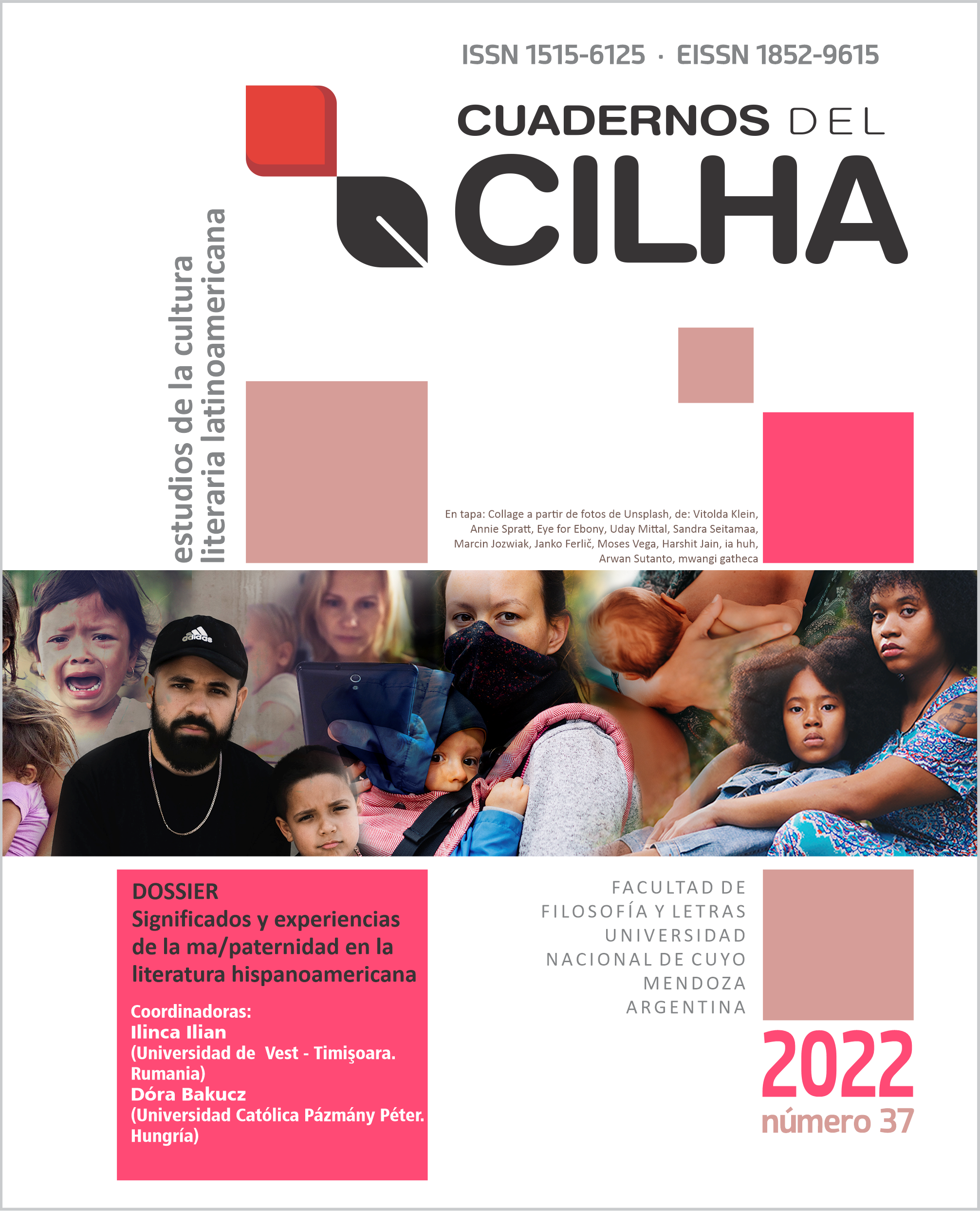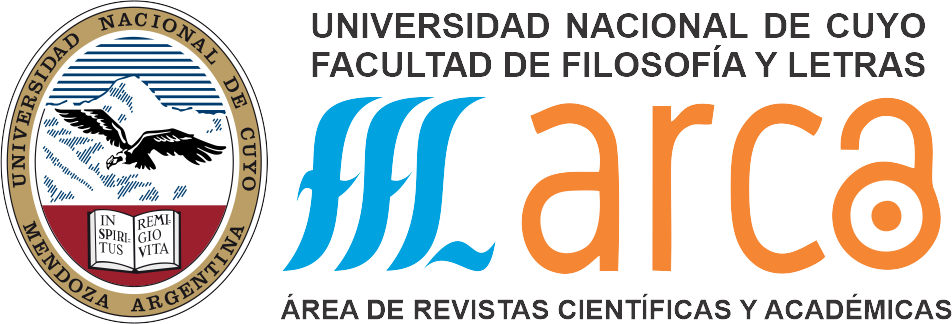Mater semper certa est? Samples of disruptive maternity, omissions and domains in the narrative of Fernanda Trías, Giovanna Rivero and María José Ferrada
DOI:
https://doi.org/10.48162/rev.34.049Keywords:
Fernanda Trías, Giovanna Rivero, María José Ferrada, Alternative maternity, Isolated existenceAbstract
An analysis of three contemporary fictional texts by Hispanic-American female narrators who construct female figures capable of questioning, with their attitudes and vital choices, both the stereotyped models of the feminine and the maternal, as well as the maintenance of the compact tradition of the nuclear family, is proposed. Can the destructuring of the traditional assignments of maternal roles in the family nuclei described in the diegesis be considered as a break with respect to the canonical development of the female self within the framework of mother-child ties? Or, instead, is it a subjective process that concerns individuality and is disconnected from current socio-historical processes? We will try to see how the selected texts swing between an extreme marked by the maternal control of the foreign body, as a practice that intervenes at the anatomical level making the body of the child weak and docile, and another extreme in which the maternal omissions and absences offer the progeny the opportunity to articulate a discourse of "subjective constitution of the self", detached from the inter-generational relational framework.References
Beck, U. (2017). La sociedad del riesgo. Hacia una nueva modernidad. Paidós.
Calderón Carrillo, D. (enero/junio, 2015). Los niños como sujetos sociales. Notas sobre la antropología de la infancia. Nueva antropología, 82(28), enero/junio de 2015.
Castro Ricalde, M. (2009). Género. En M. Szurmuk y R. McKee Irwin (coords.). Diccionario de estudios culturales latinoamericanos (págs. 112-119) Siglo XXI editores.
Domínguez Caparrós, J. (2019) [2017]. Teorías literarias del siglo XX. Editorial universitaria Ramón Areces.
Ferrada, M. J. (2017). Kramp. Alianza.
Foucault, M. (2012). La hermenéutica del sujeto. Curso del colegio de Francia 1981-1982. Fondo de Cultura Económica, 2002.
Foucault, M. (2002). Vigilar y castigar. Nacimimiento de la prisión. Siglo XXI.
Gamba, S. (2008). ¿Qué es la perspectiva de género y los estudios de género? En S. Gamba (coord.) Diccionario de estudios de género y feminismos. Biblos.
Gilbert, S. y Gubar S. (1998). La loca del desván. La escritora y la imaginación literaria del siglo XIX. Cátedra.
Gorbach, F. (2014). Locura moral y degeneración: los caminos de la biopolítica. Mexico a finales del siglo XIX. En H. Cardona Rodas y Z. Pedraza Gómez (eds.), Al otro lado del cuerpo. Estudios biopoliticos en América Latina. Ediciones Uniandes, (págs. 185-207) Laertes.
Hernández Martínez, C. N. (2012). Foucault: las relaciones entre el poder y la vida. En D. Fernández Agis y Á. Sierra González (eds.), La biopolítica en el mundo actual. Reflexiones sobre el efecto Foucault. Laertes Ediciones, 65-88.
Lash, S. (2007). Sociología del postmodernismo. Amorrortu editores.
López Sánchez, O. (2014). La higiene popular dirigida a las mujeres-madres: estrategias de la cruzada médico higienista en la sociedad mexicana del porfiriato. En H. Cardona Rodas y Z. Pedraza Gómez (eds.), Al otro lado del cuerpo. Estudios biopoliticos en América Latina (págs. 164-184) Ediciones Uniandes, Laertes.
Núñez Becerra, F. (2014). Un secreto bien guardado: cuerpos, emociones y sexualidad femeninos y del México del siglo XIX. En H. Cardona Rodas y Z. Pedraza Gómez (eds.), Al otro lado del cuerpo. Estudios biopoliticos en América Latina (págs. 141-161) Ediciones Uniandes, Laertes.
Premat, J. (2014). Non nova, sed nove. Inactaludades, anacronismos, resistencias en la literatura contemporánea. Quodlibet.
Rivero, G. (2014). 98 segundos sin sombra. Caballo de Troya.
Sierra González, Á. (2012). Cuerpo y terror. ¿Una relación política? En D. Fernández Agis y Á. Sierra González (eds.), La biopolítica en el mundo actual. Reflexiones sobre el efecto Foucault. (págs. 11-40) Laertes.
Silva, M. (1918). Higiene popular. Colección de conocimientos y de consejos indispensables para evitar las enfermedades y prolongar la vida, arreglados para uso de las familias. Librería de la viuda de Ch. Bouret.
Skliar, C. (agosto, 2016). Niñez, infancia y literatura. Revista crítica, 1(1), 19-28.
Trías, F. (2001). La azotea. Editorial Tránsito.





















